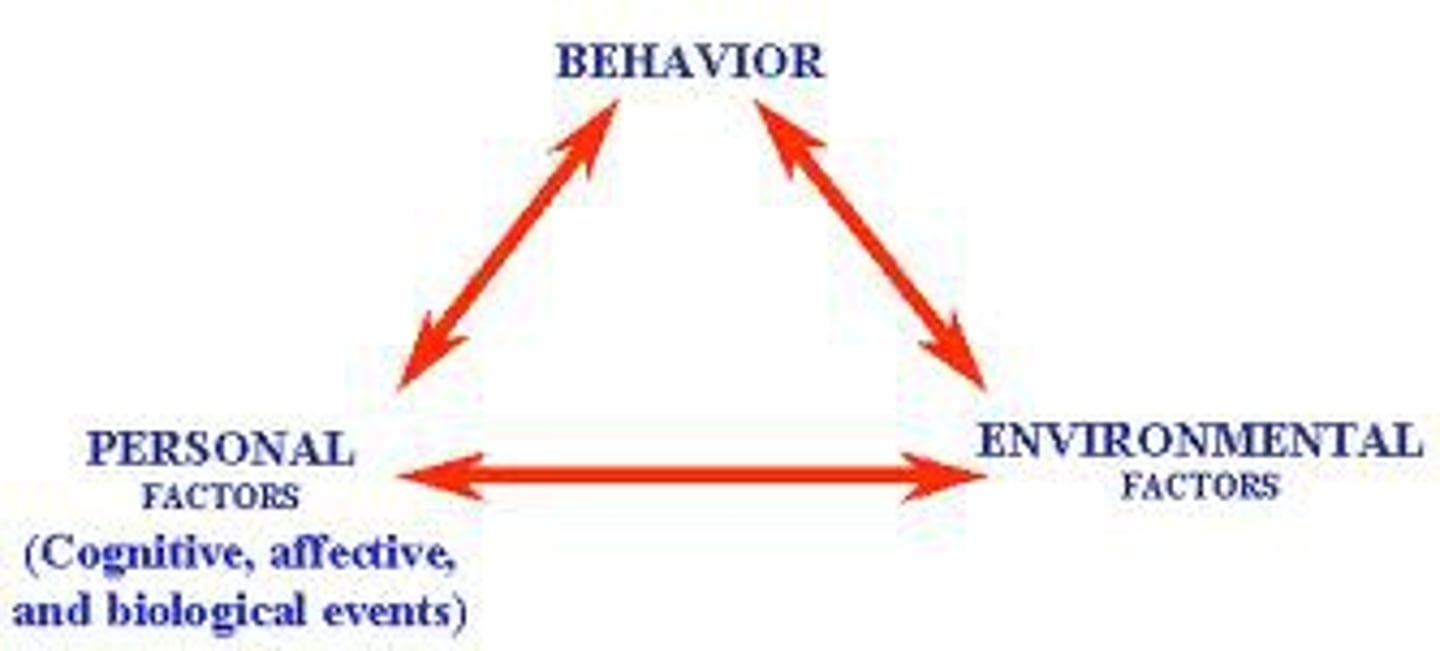4.5- Social-Cognitive & Trait Theories of Personality
1/14
There's no tags or description
Looks like no tags are added yet.
Name | Mastery | Learn | Test | Matching | Spaced | Call with Kai |
|---|
No analytics yet
Send a link to your students to track their progress
15 Terms
Reciprocal Determinism
The interacting influences of behavior, internal cognition, and environment

Self-Concept
All our thoughts and feelings about ourselves, in answer to the question, "Who am I?"
Self-Efficacy
An individual's belief in their capabilities to perform a task
Self-Esteem
One's feelings of high or low self-worth
Big Five Theory
A trait theory that identifies five main characteristics that account for most individual differences in personality (Openness to experience, Conscientiousness, Extraversion, Agreeableness, Emotional Stability)
Openness to Experience
A personality dimension that characterizes someone in terms of imagination, sensitivity, and curiosity
Conscientiousness
A personality dimension that describes someone who is responsible, dependable, persistent, and organized
Extraversion
A personality dimension describing someone who is sociable, gregarious, and assertive
Agreeableness
A personality dimension that describes someone who is good natured, cooperative, and trusting
Emotional Stability
A personality dimension that characterizes someone as calm, self-confident, secure (positive) vs nervous, depressed, and insecure (negative)
Objective Tests
Personality tests that are administered and scored in a standard way
Personality Inventories
A questionnaire on which people respond to items designed to gauge a wide range of feelings and behaviors; used to assess selected personality traits
Factor Analysis
A statistical procedure that identifies clusters of related items (called factors) on a test; used to identify different dimensions of performance that underlie a person's total score
Type A Personality
Personality type that describes people who are competitive, driven, hostile, and ambitious
Type B Personality
Personality characterized by relatively relaxed, patient, easygoing, amicable behavior